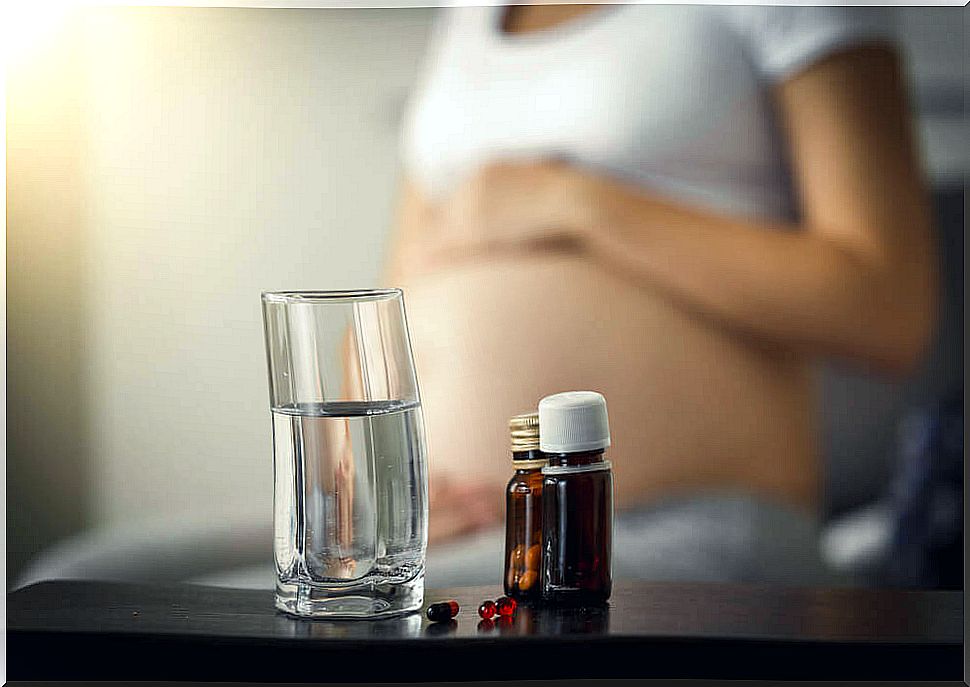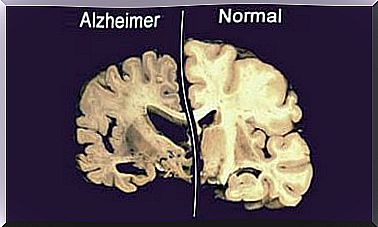Medicines Authorized During Pregnancy
Taking medicines during pregnancy, childbirth and breastfeeding can have dangerous effects on the health of both mother and baby. Find out today in this article which drugs are not recommended and which are safe during pregnancy.

One of the first precautions a woman should take during pregnancy is mainly not to get sick. A large number of drugs currently on the market are generally contraindicated for this segment of the population. In fact, there are very few safe medications that women can take during pregnancy.
Despite this, the consumption of drugs during pregnancy is usually very common. For example, in a study carried out by the World Health Organization (WHO) in 22 countries, it was found that only 14% of 14,778 women had not taken any medication in the months before giving birth.
More specifically, after vitamins and supplements, drugs for infections and inflammation are generally the most consumed by pregnant women. In addition, the study indicates that pregnant women also consume certain drugs without following the recommended doses.
For these reasons, we invite you to discover in this article the authorized drugs and the risks that many drugs entail during pregnancy.
Medicines: risks during pregnancy

Some drugs are particularly dangerous during pregnancy. The reason for this is that during pregnancy the mother is exposed to physiological and pharmacokinetic changes. Pharmacokinetic changes include the absorption, metabolism and excretion of a drug in the body and its pharmacological reactions.
For this reason, during pregnancy, the concentration of certain drugs in a woman’s body can affect her health and that of her child.
Teratogenicity and its effects on the fetus
Teratogenicity is the ability of certain drugs to cause harm to the health of the baby. Certain drugs can cause birth defects at any stage of its development. This is because the mother’s body absorbs the medicine.
Once the drug is in the mother’s body, some components can reach the fetus through the blood and affect its development. Likewise, it is important to emphasize that the susceptibility to teratogenicity is greater during the third month of gestation.
For this reason, pregnant women should be careful about self-medication, as they are often unaware of how much this could affect the health of the baby.
The risks of medication during pregnancy

In a pregnant woman and her fetus, the effects of the active substances of any medicine depend on a large number of factors. For this reason, we are now going to share with you several of the habits to follow when taking certain medications so as not to take unnecessary risks during pregnancy.
- Dose administered to be followed as directed by the doctor
- Category of drugs at risk, according to the Food and Drug Administration (FDA) of the United States
- Frequency of administration
- Pregnancy month
- State of health of the pregnant woman, among others
Classification of drugs at risk during pregnancy
To avoid certain complications during pregnancy, it is very important to know the risk of each active ingredient of the drugs.
Therefore, the FDA has established a classification of the level of risks of certain drugs for pregnant women and their fetus, which we briefly summarize for you below:
- Category A: In this class of drugs, there is no risk to the fetus during pregnancy.
- Category B: the use of these drugs is accepted during pregnancy. However, the absence of adverse effects has only been verified in animals. Therefore, the effects of these drugs have not been confirmed in pregnant women.
- Category C: this type of drug should be administered after an assessment of the risks and benefits, since consequences for the fetus cannot be excluded.
- Category D: Medicines in this category should only be used if there are no other alternatives, as there may be some risk to the fetus when taking them.
- Category X: all of these drugs are explicitly contraindicated during pregnancy. The main reason is that the risks outweigh the possible benefits.
Medicines permitted during pregnancy
So what are the drugs allowed during pregnancy? Below we present some of the most widely used drugs belonging to different pharmacological groups.
Antibiotics and antimicrobials
This group of drugs is one of the most widely used during pregnancy and lactation. Usually, they are consumed in cases of mastitis, premature rupture of the ovular membranes before the onset of childbirth or during infections such as acute tonsillitis.
Below we present several of the subgroups of this category which are considered to be the safest drugs to take during pregnancy.
Penicillins
Penicillins are generally the first drug option used in many cases during pregnancy. This is due to their wide field of attack and their high safety index, both for the pregnant woman and for the fetus.
The active ingredients of drugs belonging to this classification among penicillins are as follows:
- Amoxicillin
- Amoxicillin-clavulanic acid
- Ampicillin
- Cloxacillin
- Benzylpenicillin
- Cephalosporins
Drugs not recommended during pregnancy
Among the drugs not recommended during pregnancy, the main ones are, among others: aminoglycosides (gentamicin, amikacin, tobramycin), tetracyclines and fluoroquinolones. This is mainly due to their toxic effects on the baby’s bones and kidneys during pregnancy.
Analgesics, antipyretics and anti-inflammatories
During pregnancy, pregnant women may have a fever, inflammation, or pain due to a respiratory infection or tissue or bone damage. The frequency of these conditions during pregnancy is usually almost the same as in other stages of any other person’s life. However, back pain increases even more during pregnancy but also during breastfeeding.
Before resorting to medication, physiotherapy will always be preferable as a treatment to relieve pain in a natural way. If medication is absolutely necessary, certain groups of the following medications are usually the most indicated :
Analgesic-antipyretic
We find in this classification drugs like paracetamol. This is a drug widely used for its safety. However, care should be taken with the doses because, if given in excess, paracetamol could cause changes in the kidney function of the child.
Nonsteroidal anti-inflammatory drugs
This subgroup of drugs is safer while breastfeeding. However, its negative effects can vary depending on the stages of pregnancy. Check out some examples of these types of drugs:
- Acetylsalicylic acid
- Ibuprofen
- Diclofenac
- Naproxen
- Piroxicam, among others
Drugs not recommended in this group also include opioid pain relievers, ergotamines (migraine) and triptans.
Conclusions
The maxim “not to consume drugs during pregnancy” is still advocated in the field of medicine. However, certain conditions or illnesses can endanger the health of both mother and baby. Fortunately, you can also find drugs that are safe during pregnancy.
Examples of drugs that are safe during pregnancy include antibiotics, antimicrobials, pain relievers, anti-inflammatory drugs, and antipyretics. However, remember that it is much safer and more responsible to let a medical team assess the positive and side effects of a drug for a pregnant woman and her baby.
Although this article presents you with reliable medical information, we recommend that you always consult a specialist to learn more about this topic. And remember that self-medication is a very dangerous practice, especially during pregnancy and breastfeeding. So, don’t take any risks and take care of YOURSELF!
The effects of mercury on children with autism seem increasingly evident. During pregnancy or at an early age, many metals like mercury are linked to autism. We’ll walk you through what the latest research reveals. A study found that eating high fish during the first half of pregnancy increases the likelihood that the unborn child will suffer from autism spectrum disorders. In this article, discover the relationship between autism and consumption of mercury-contaminated fish during pregnancy.









